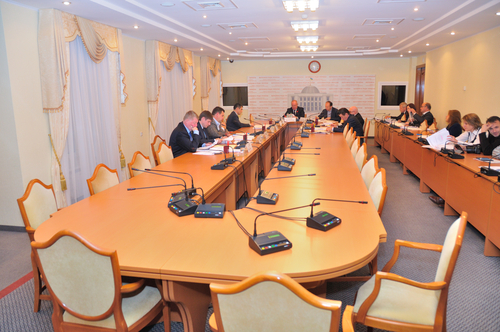International Committee Recommends Revision of MS Definitions
Written by |
Following yesterday’s publication of “Multiple Sclerosis Management – A Changing Landscape 2013,” a report outlining ongoing goals and focus points for advancing MS drugs and treatments, as a result of a meeting of specialists in Vienna, Austria, a new article was published that presents new recommendations from an international team of leaders in research and clinical care for updating MS definitions.
Published in the journal Neurology, the report is the result of an effort from the International Advisory Committee on Clinical Trials in Multiple Sclerosis to improve descriptions and phenotypes regarding the disease.
In 1996, the Committee defined consensual descriptions of the courses of MS, in order to facilitate the research and improve the common understanding between researchers and clinicians worldwide. From these standardized descriptions, four courses of MS were agreed upon: relapsing-remitting, secondary progressive, primary progressive, and progressive relapsing. These definitions are already established, and the MS community agrees that they continue to be viable descriptions of the disease’s courses. However, the recent committee believes that there is a need to update these definitions as the disease develops.
“Having better definitions of different types of MS would greatly facilitate research studies, communications between people with MS and their healthcare providers, and treatment decisions,” said Timothy Coetzee, PhD, Chief Advocacy, Services and Research Officer of the National MS Society.
The new report recommends that prior clinical course descriptions be modified, following detailed research on medical literature and convening international workshops. However, the four major courses of MS will continue to be used. The committee also underscored that clinicians not only determine the patient course of MS, but also subcategorize it as “active” or “not active,” according to the presence of clinical relapses or activity on MRI scans, or as “progressing” if worsening, or “not progressing,” depending on the clinical evidence of disability. “This will provide a truer picture of what an individual experiences,” added Dr. Coetzee.
“These revisions should make communication with patients and among physicians clearer and should also enhance the design, recruitment and conduct of clinical trials, which will further help us understand the disease,” explained Fred D. Lublin, MD, Director of the Corinne Goldsmith Dickinson Center for Multiple Sclerosis at The Icahn School of Medicine at Mount Sinai, and the article’s lead author.
[adrotate group=”4″]
Finally, the Committee recommended further research in the areas of long-term studies to follow people with MS over time, suggesting studies to understand brain and spinal damage caused by the disease, biomarkers to differentiate types of MS, and patient-reported outcomes. Investigators supported by the National MS Society and others are already working in some of these areas and these recommendations will be considered by the Society’s leadership as it develops potential investigation plans.
The volunteer Committee is funded by both the National MS Society and the European Committee for Treatment and Research in MS (ECTRIMS).
Click here to download the report from the International Advisory Committee on Clinical Trials in Multiple Sclerosis in pdf format.




